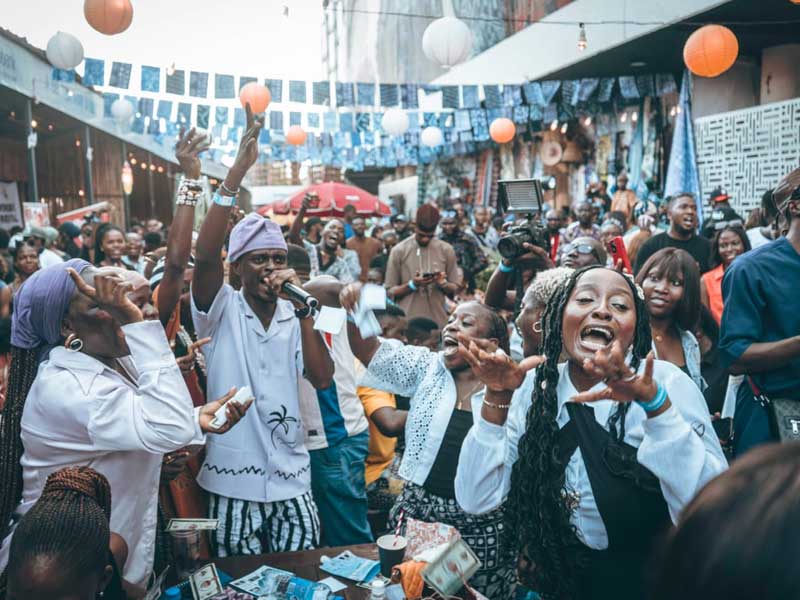Two weeks after its flavour-filled staging in Lagos, Abula Festival 2025 still lingers on the tongues and minds of guests who gathered for one of the most immersive cultural events of the year.
Held at the EcoBank Pan African Centre in Victoria Island, the food festival was the grand finale to a weeklong celebration of Yoruba culture, curated in collaboration with the EcoBank Adire Festival. While the Adire showcase dazzled vibrant textiles and historical tributes to indigenous craftsmanship, Abula Festival, themed “Ita Faaji” brought it all home through food, music, and community.
Guests arrived in Adire, Oleku, and full of owambe flair, hungry not just for food but for an experience. And Abula delivered — with bowls steaming with layers of amala, ewedu, gbegiri, and obe ata, crowned with rich assortments of shaki, ponmo, and goat meat. The air was thick with aroma, laughter, and the unmistakable sound of live drums and chatter.
On stage, Midethemusicman serenaded the crowd with his baritone-backed band, while Most Precious and Judeworldstar kept the tempo alive. The always-animated Boma Johnson and Olootu Agba Lumee co-hosted with flair, stirring the audience into waves of laughter and applause.

From grilled catfish to pounded yam and egusi, street snacks to party jollof, the festival was a journey through the flavours of Yoruba cuisine and beyond. Each plate told a story; every bite felt like a tribute to tradition. Guests strolled through the space with ceramic plates in one hand, calabash-like cups of palm wine in the other, savouring both taste and atmosphere.
Curated by Bisilola Bakare, culturepreneur and founder of Afrovibes Africa, Abula Festival was more than a feast — it was a celebration of memory, identity, and the shared language of taste.
“We’re curating the experience in an even more immersive way to attract a global audience and position it as a socio-cultural and economic empowerment grower,” Bakare said, welcoming guests like a seasoned host.
The energy extended into the marketplace, where over 50 vendors turned the grounds into a lively hub of trade and culture, from Adire fabric sellers and palm wine brewers to small business owners showcasing Nigerian brands.
Backed by brands like Maltina, Goldberg, Imperial Black, Livespot, Lagos Tourism, and BET, Abula Festival is shaping up to be a movement. One that fuses culture with commerce, and positions food as a tool for storytelling, identity, and international appeal. And in a country constantly redefining how it tells its story, Abula Festival is proof that Nigeria’s next great export may just be its cuisine.

















Leave a comment